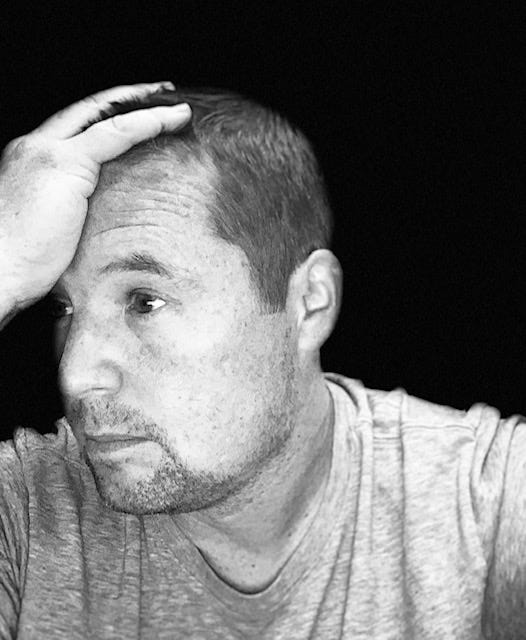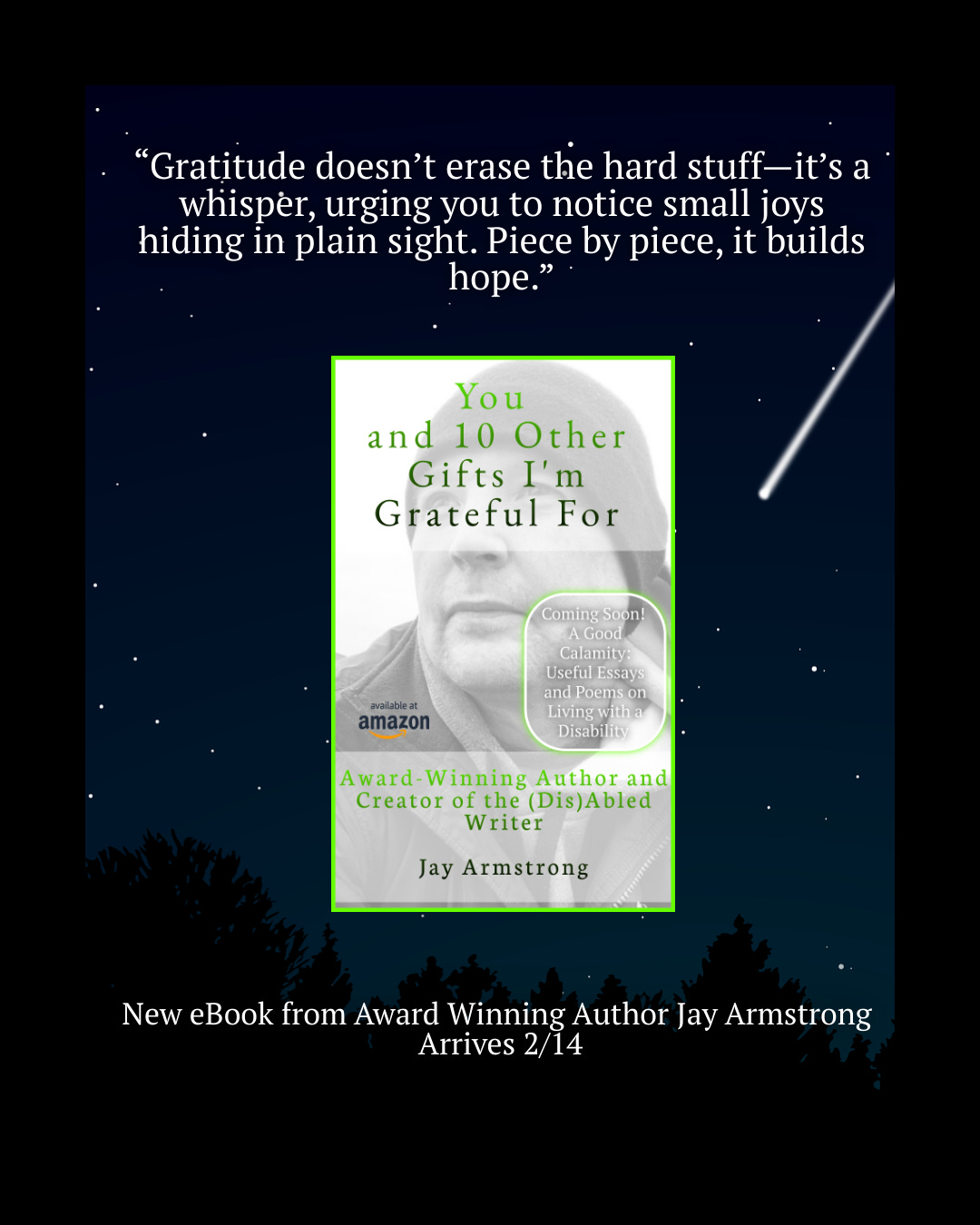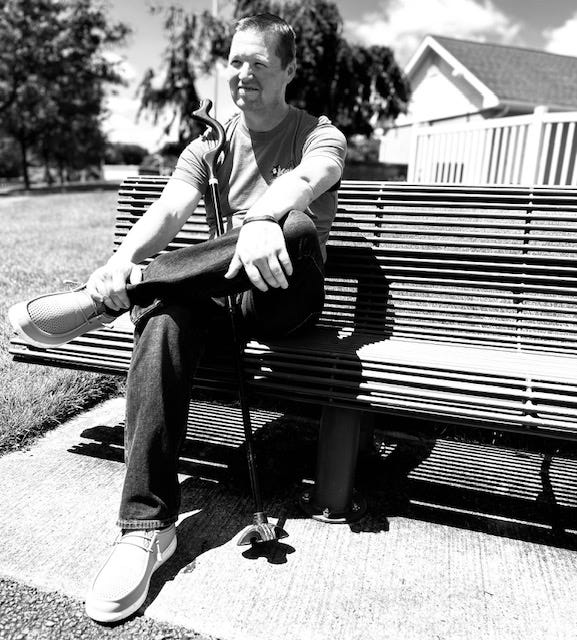FOMO—that nagging feeling of being left behind while everyone else seems to be living their best lives—has a way of creeping in at the most inconvenient times.
I used to think FOMO was just for teenagers scrolling through Instagram, watching their friends suntan on the beach while they were stuck at home doing Algebra homework in January. But, as it turns out, FOMO doesn’t care about age. It evolves, finding new ways to mess with you.
In recent years, both of my sons’ travel soccer teams have played in tournaments hundreds of miles away—beachside resorts, mountain towns, even the cell-reception wasteland known as South Jersey. Every year, when the tournament schedules are released, I try to remain calm and supportive.
I smile and say, “That sounds amazing! You all will have a blast,” while my insides are doing somersaults. Because when you’re disabled, those trips aren’t exactly as accessible as they sound. It’s not that I don’t want to be there. I’d love to be there on the sidelines or standing at the top of a mountain, wind in my hair, taking in the breathtaking view.
But then I think about how much coordination and energy it takes just to get out of the car some days. While my family makes plans to hike to a “hidden gem” waterfall, I’m sitting at my writing desk, wondering if I could build a snowman in the living room instead.
And I know I’m not alone in this. I’ve spoken to many disabled people over the years, and if there’s one universal truth, it’s this: the inability to travel freely is its own kind of heartbreak. Travel represents freedom, adventure, and connection—all the things we crave—and the barriers to it can feel like a wall separating us from the life we wish we could live.
I’m sure my family doesn’t mean to leave me out. But the reality is, travel is just... easier for most people. They don’t have to think about access ramps, handrails, or whether the hotel elevator can fit a rollator. They don’t worry about finding a good spot to rest every ten minutes. It’s a different kind of exhaustion and stress— one that isn’t visible but is very real.
And it’s not just the trips we miss out on—it feels like we’re missing out on life itself.
So, while they pack for their adventures, I’m busy managing the emotional waterfall that comes with being happy for them and sad for myself at the same time. There’s a bit of irony in this, isn’t there?
Here I am, embracing my disability and owning it in so many ways—finding strength in vulnerability, learning to be comfortable in my skin—and yet, when it comes to travel, I’m flooded with feelings I thought I’d outgrown.
But here’s something I’ve learned about FOMO: it’s not just about missing a vacation. It’s about how our brains react to the feeling of exclusion.
Research shows that FOMO activates the same areas of the brain as physical pain. Social exclusion and physical pain overlap in our brain’s wiring. Essentially, your brain treats the feeling of being left out like an actual injury, making it feel like something is being taken from you.
This makes sense if you think about it. We’ve evolved to stay connected—social bonds were essential for survival. Being part of the group meant protection, resources, and mutual care. So, when we see others bonding or having fun without us, our brain triggers a “danger signal,” warning us that we’re missing something important.
FOMO is in our DNA. And when you’re disabled, it hits differently. It’s not just the emotional sting of exclusion; it’s the cold, logistical reality that certain experiences are physically out of reach. And that really hurts. It makes you feel like you’re not enough.
Still, I’ve learned to embrace my version of the trip—one that’s less about the destination and more about how I get there. And if FOMO still pops up? I’ll do my best to simply understand—I’m right where I need to be.
It’s not the “where” that defines the journey—it’s the “how.” My experiences might look different, but they’re no less valuable. I’ve spoken with so many others who share this struggle, and I want them to know: we’re not alone in this. By understanding how FOMO works, we can approach it with more patience and grace.
It’s not a flaw—it’s just our brains doing their thing. And while I might not be scaling waterfalls anytime soon, I’ve learned to scale my own mountains. They may be small, but they’re mine, and I climb them at my own pace.
So, here’s to embracing the trips we take, no matter how far or near, and finding joy in the journey—even when it’s different than everyone else’s.
Be well,
Jay
I'm super excited to announce my 3rd book, "You and 10 Other Gifts I'm Grateful For" arrives on Amazon on 2/14. The preorder link is coming soon!
"This eBook isn’t about pretending everything is okay or sugarcoating the challenges of living with a disability. It’s about finding the unexpected gifts that remind me—even on the hardest days—that there’s always something worth holding onto."
Book Sale Link
One Line, One Love: Episode 53
In this episode of One Line, One Love, hosts Gail and Jay tackle a question many writers wrestle with: What does it really mean to "find your voice"? A writer’s voice can feel elusive, but it’s at the heart of authentic storytelling. Gail and Jay share personal anecdotes, draw from literary greats, and explore how your voice evolves as you do. Whether you’re just starting out or a seasoned storyteller, this episode will inspire you to embrace the courage it takes to uncover and own your unique writing voice.
Jay Armstrong is an award-winning author and speaker who refuses to be defined by his diagnosis of a rare neurological disease. Despite challenges with movement, balance, eyesight, and speech, Jay continues to press forward with determination, humor, and hope. As the leader of the Philadelphia Ataxia Support Group, he’s dedicated to helping others find joy, peace, and meaning in their lives, no matter the obstacles they face.











Jay, I hear you that FOMO sucks. Thank you again for sharing your vulnerability so our collective awareness is elevated and our hearts are opened.
Well… you, Jay Armstrong can build/create/write adventures and entire new worlds with words and that’s something a lot of people can’t access.
😊